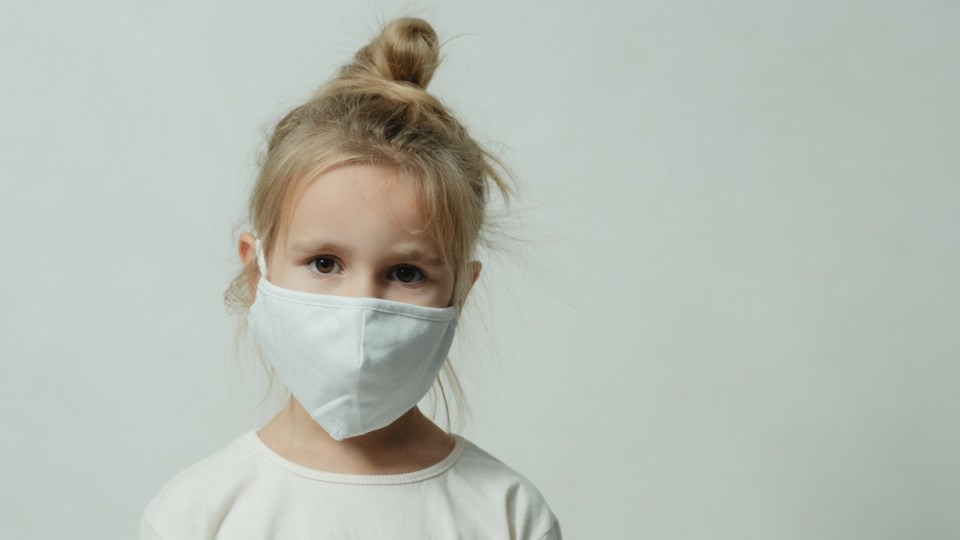A study of Canadian children infected with the SARS-CoV-2 (COVID-19) virus has indicated that it can be challenging to identify children likely to be infected and that having a runny nose, or a cough or a sore throat is not really a valid indicator.
The study was featured in the newest issue of the Canadian Medical Association Journal (CMAJ) and highlighted research done on more than 2,400 children in Alberta who were tested for the virus between mid-April and mid-September 2020. The study said the test results show certain symptoms that could be helpful in screening and determining which children actually have the strain of coronavirus that causes COVID-19.
Also, of all the children tested in the Alberta study, 35.9 per cent were asymptomatic, having no obvious distress or indicators of the disease.
"Because more than one-third of pediatric patients who test positive for SARS-CoV-2 infection exhibit no symptoms, identifying children who are likely to be infected is challenging," said the study.
The testing found that 1,987 children had a positive result and 476 tested negative. The study showed that a cough (24.5 per cent) and rhinorrhea / runny nose (19.3 per cent) were two of the most common symptoms among children who tested positive. But those conditions were also common among children with negative test results (45 and 39 per cent respectively) and were not predictive of a positive test, said the study.
The four conditions found to be most representative of positive COVID-19, according to the study, were anosmia/ageusia (loss of smell, loss of taste), nausea and vomiting, headache and fevers or feverish chills.
"Administrators of screening questionnaires for schools or daycares may wish to consider reassessing the symptoms they screen for, to include only those that are most strongly associated with positive results for swabs for SARS-CoV-2 infection. The positive LR (likelihood ratio) for the four strongly associated symptoms were similar in all of our sensitivity analyses and thus relevant whether screening children with symptoms or questioning those tested in the context of contact tracing," said the study.
The study said one of the key elements in its research was the fact that it was community-based on a cohort of children who presented a range of disease severity rather than being limited to children brought to the emergency department and who were admitted to hospital.
Also, of all the children tested in the Alberta study, 35.9 per cent were asymptomatic, having no obvious distress or indicators of the disease.
"Because more than one-third of pediatric patients who test positive for SARS-CoV-2 infection exhibit no symptoms, identifying children who are likely to be infected is challenging. Our study highlights certain symptoms that might be useful in predicting which children have SARS-CoV-2 infections.”
The study was authored by the following medical scientists with Alberta Health Services; James A. King, Tara A. Whitten, Jeffrey A. Bakal and Finlay A. McAlister. This study is based in part on data provided by Alberta Health and Alberta Health Services. The interpretation and conclusions are those of the researchers and do not represent the views of the Government of Alberta or Alberta Health Services, said a note from the authors.
Len Gillis is a Local Journalism Initiative reporter at Sudbury.com, covering health care in Northern Ontario. The Local Journalism Initiative is funded by the federal government.



